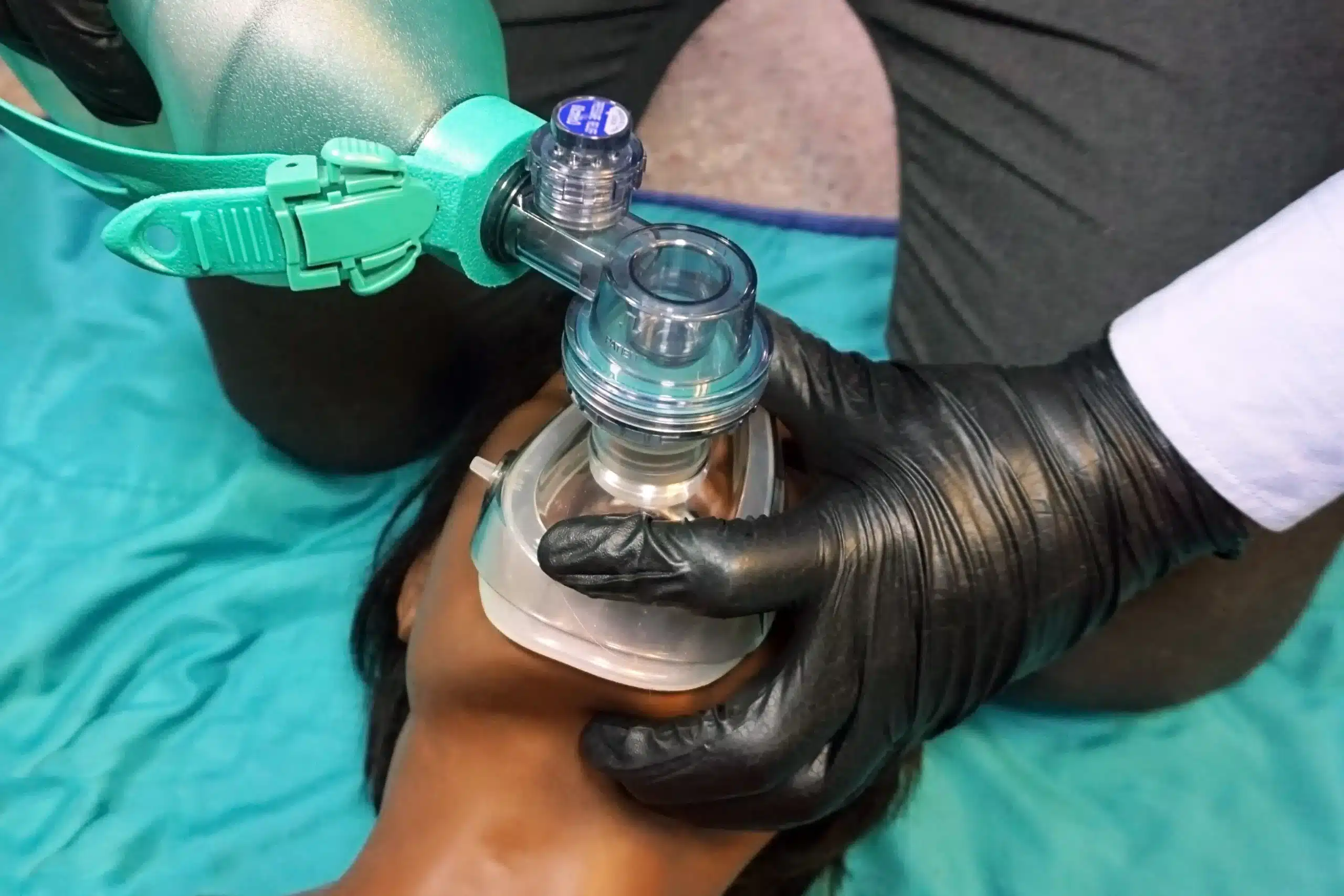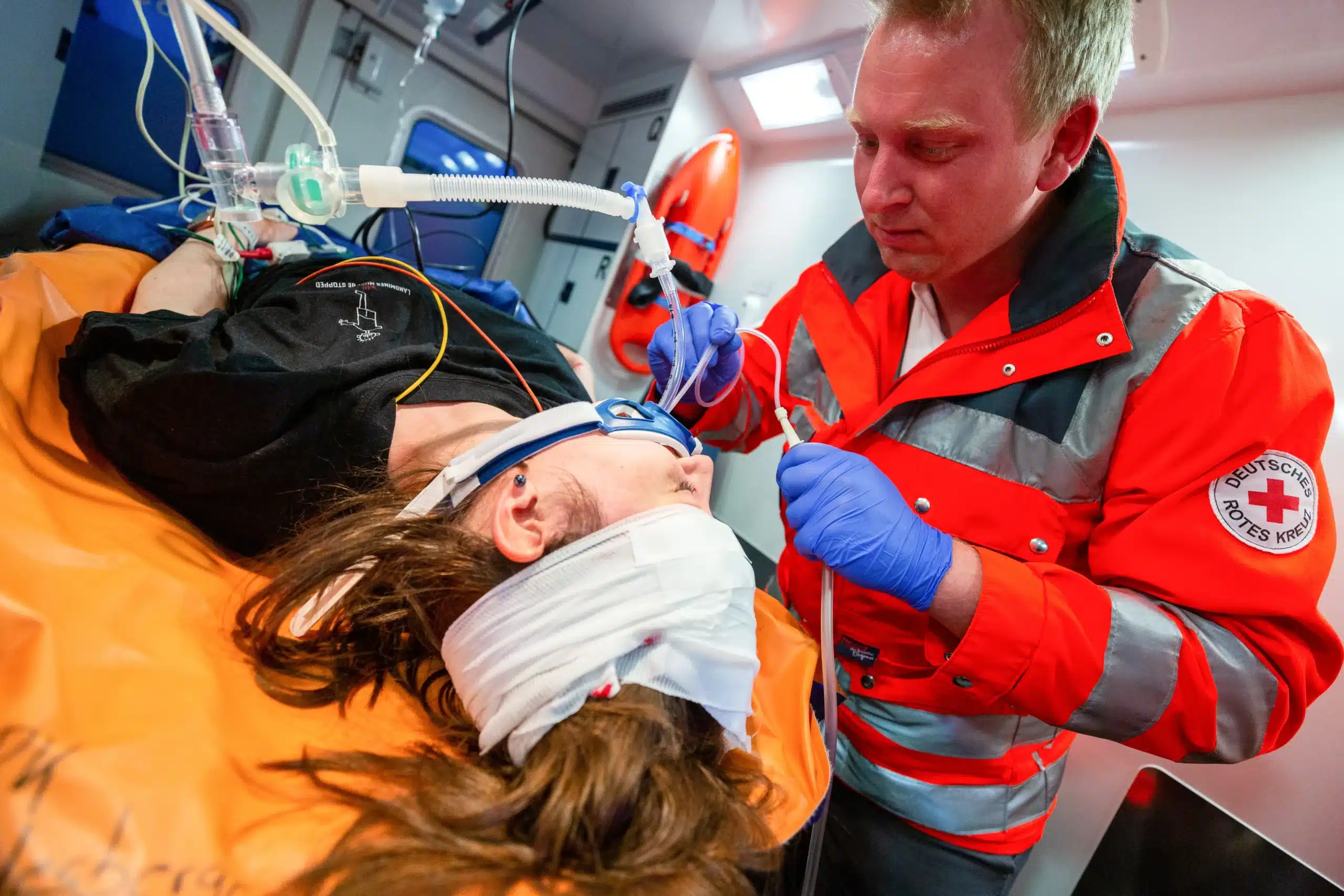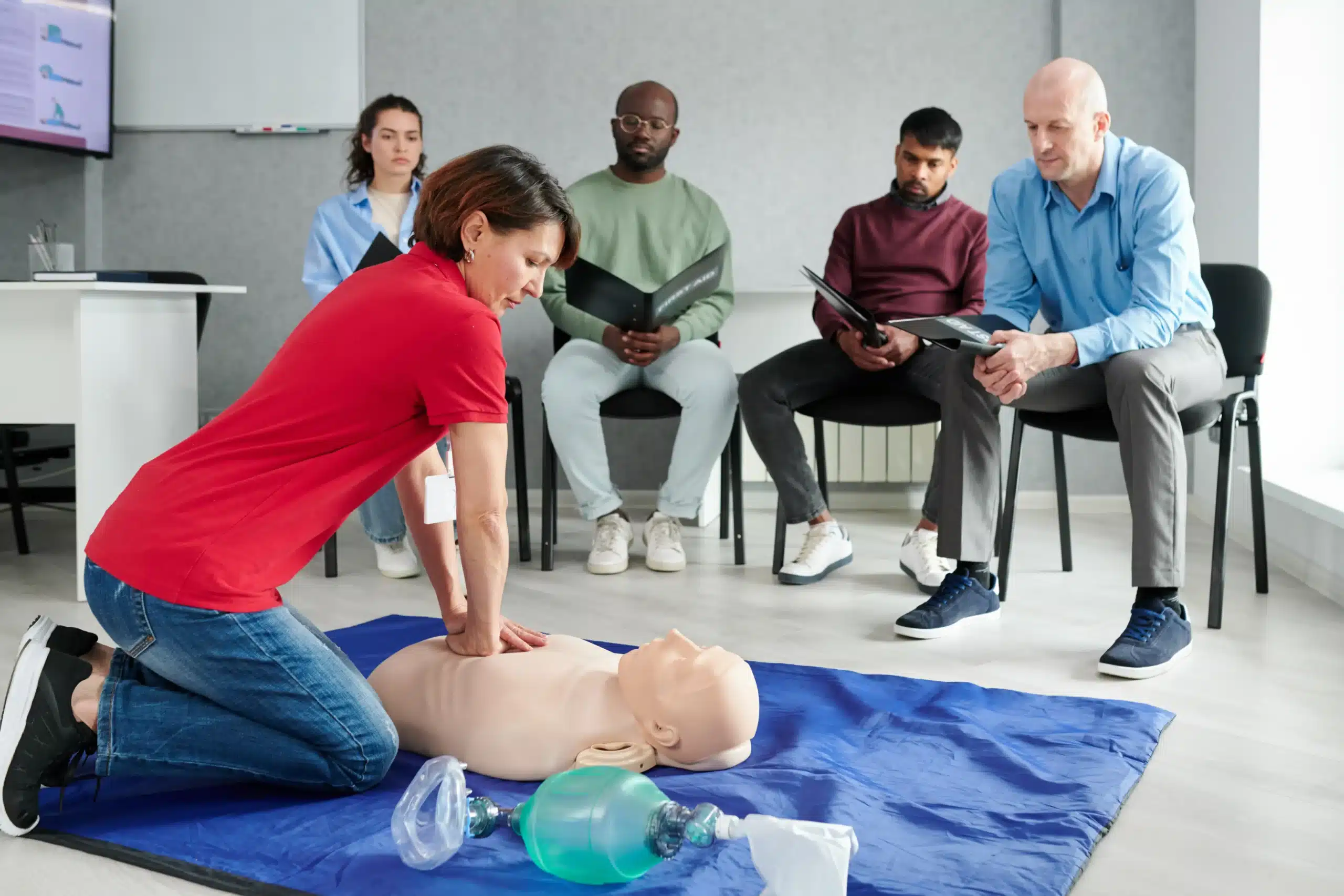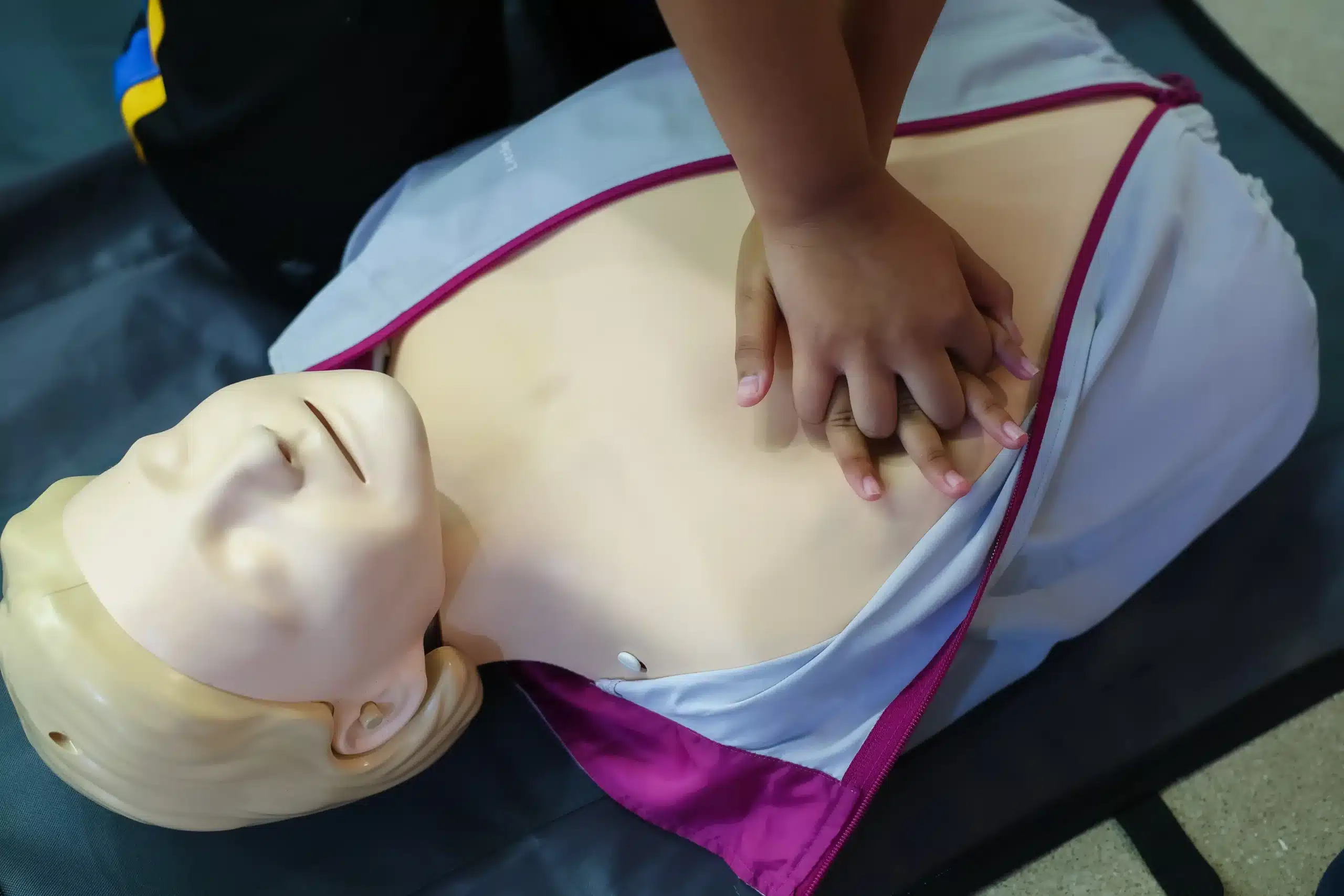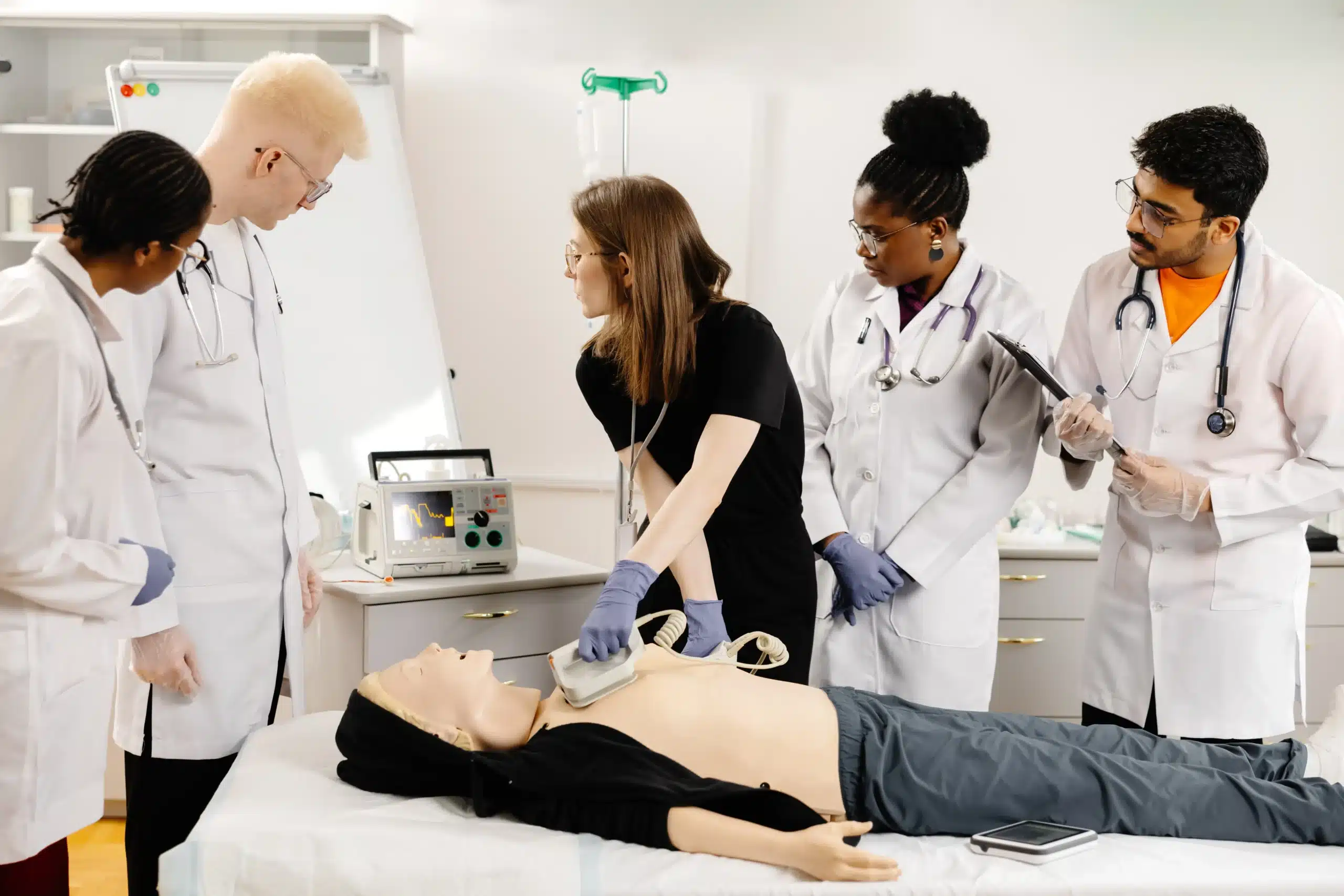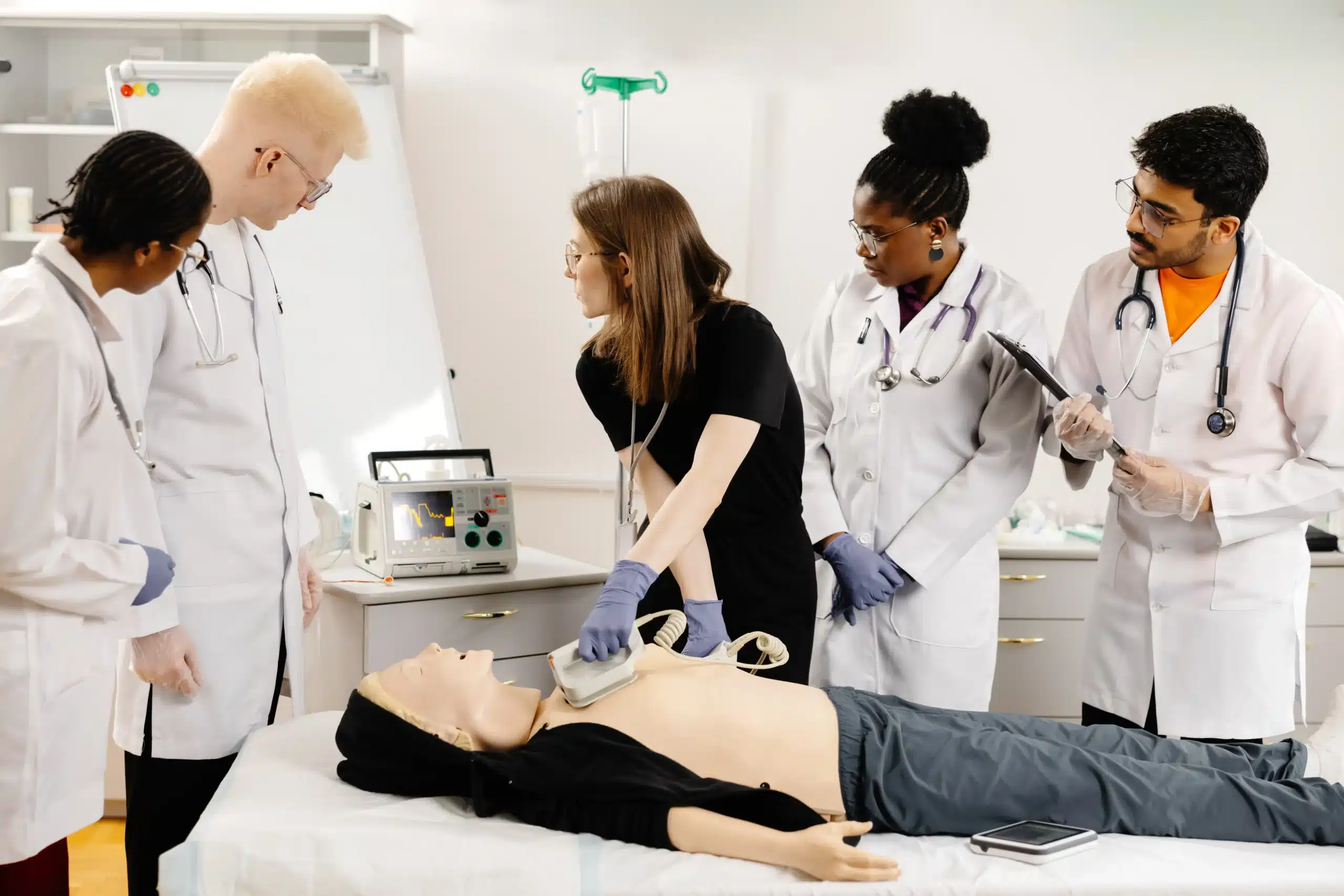Emergencies happen, and knowing CPR can make you a vital link in the chain of survival. This comprehensive guide explores the world of CPR training, focusing on CPR courses in Fairfield and surrounding areas. We’ll cover everything from the different types of CPR certifications available to the costs and benefits of getting certified. Whether you’re required to have CPR certification for your job or simply want to be prepared for any situation, this guide will help you find the right course. We’ll also discuss how to choose a reputable training provider and what to expect during your CPR training. Plus, we’ll offer tips on finding discounts and making the most of your training experience.
Key Takeaways
- CPR training is essential for everyone: Learning CPR, whether for professional or personal reasons, equips you with the skills to respond effectively in medical emergencies. Find a course that aligns with your specific needs and goals.
- Flexible learning options make CPR training accessible: Explore various course formats, including in-person, online, and blended learning, to find the best fit for your schedule and learning preferences.
- Compare CPR course providers and look for savings: Consider factors like cost, included materials, provider reputation, and available discounts when selecting a CPR course.
What is CPR?
CPR stands for cardiopulmonary resuscitation. It’s a lifesaving technique used in emergencies when someone’s breathing or heartbeat has stopped. CPR involves chest compressions, and sometimes rescue breaths, to maintain blood flow to the brain and other vital organs. Essentially, CPR buys time until professional medical help arrives. Think of it as a bridge keeping someone alive until paramedics can take over.
Why CPR Training Matters
Learning CPR can literally double a person’s chance of survival after cardiac arrest. Those first few minutes are absolutely critical. Early CPR helps maintain that vital blood flow to the brain and other organs, increasing the odds of a positive outcome. CPR and First-Aid Certification courses empower you to make a real difference in a life-or-death situation. The British Heart Foundation highlights the importance of readily available CPR training.
Who Should Get Certified?
Many professions require CPR certification. Healthcare professionals like doctors and nurses need this training, but the need extends far beyond hospitals. Lifeguards, teachers, and daycare workers often require CPR certification, and even some security and hotel positions list it as a requirement. Volunteers for certain organizations might also need CPR training. Beyond specific job requirements, CPR training is a valuable skill for anyone, especially parents, caregivers, or anyone who regularly interacts with children or the elderly. CPR certification can be a valuable asset in various situations. Check out our CPR and First-Aid Certification courses to find the right fit for you.
CPR Course Options
Choosing the right CPR course depends on your specific needs and career path. Here’s a breakdown of some common CPR certifications available in Vacaville, Dixon, and Fairfield through Vacaville CPR Classes:
BLS for Healthcare Providers
The BLS for Healthcare Providers course is designed for medical professionals like doctors, nurses, EMTs, and other healthcare providers. It covers core life support skills for adults, children, and infants, including CPR, AED use, and relief of choking. This course is typically a 4.5-hour course and provides a two-year American Heart Association certification upon successful completion. It emphasizes teamwork and high-performance resuscitation techniques. Check out our CPR and First Aid Certification Courses for more details.
Heartsaver CPR/AED
The Heartsaver CPR/AED course is a great option for those who aren’t healthcare professionals but still want to learn essential lifesaving skills. This course covers adult, child, and infant CPR and AED use, making it ideal for teachers, coaches, personal trainers, and other community members. It’s also a good choice for those who need CPR certification for their job, such as childcare providers or security guards. This course also offers a two-year certification. Contact Vacaville CPR Classes to learn more about upcoming Heartsaver courses.
Heartsaver First Aid
While not strictly CPR, Heartsaver First Aid is a valuable companion course that teaches you how to respond to common medical emergencies like cuts, burns, and allergic reactions. Learning basic first aid can help you provide immediate care until professional medical help arrives. This course is a good complement to CPR training and also provides a two-year certification. Consider bundling this training with a CPR course for a comprehensive approach to emergency preparedness.
ACLS
The Advanced Cardiac Life Support (ACLS) course is an advanced-level course for healthcare professionals who manage cardiac arrest and other cardiovascular emergencies. This comprehensive course covers topics like airway management, pharmacology, and ECG interpretation. ACLS certification is essential for many healthcare roles and requires a more significant time commitment than basic CPR courses. Contact us for more information on ACLS course schedules and registration.
PALS
The Pediatric Advanced Life Support (PALS) course is another advanced-level course specifically designed for healthcare providers who treat critically ill infants and children. Like ACLS, PALS covers advanced life support techniques and requires a more substantial time commitment. This specialized training is crucial for pediatricians, pediatric nurses, and other healthcare professionals working with young patients. Learn more about PALS and other certification courses by visiting our website.
Course Length and Formats
Finding the right CPR course often depends on your learning style and available time. Luckily, several formats are available, so you can choose what works for you. Let’s break down the most common options: in-person, online, and blended learning.
In-Person Training
In-person CPR training offers a hands-on learning experience. These classes provide a structured environment with direct interaction with an instructor, allowing for immediate feedback and personalized guidance as you practice. In-person classes are a great option if you thrive in a traditional classroom setting and value face-to-face instruction. These courses typically last a few hours, making them a convenient choice even for busy schedules.
Online Training
If you need more flexibility, online CPR and first aid courses might be a better fit. Online learning lets you study at your own pace, fitting the training around your schedule and other commitments. You can review materials as needed and progress through the modules when it’s most convenient. Keep in mind that while the coursework is online, most organizations, like LifeSavers, Inc., require an in-person skills test to ensure you can demonstrate the techniques properly and receive your certification.
Blended Learning
Blended learning combines the best of both worlds, offering the convenience of online learning with the practical experience of in-person skills sessions. You’ll typically complete the theoretical portion of the course online, learning the fundamentals at your own speed. Then, you’ll attend an in-person session to practice and receive feedback from a certified instructor. This approach offers a comprehensive learning experience, ensuring you grasp both the theory and practical application of CPR.
Certification and Renewal
Knowing how certification works is key when choosing a CPR class. You want to ensure your certification will be recognized by your employer or organization. This section breaks down the details for both American Heart Association (AHA) and Red Cross certifications.
AHA Certifications
The American Heart Association (AHA) offers various CPR and first-aid courses, resulting in certifications widely accepted across the country. These courses, often provided through authorized AHA Training Centers like Safety Training Seminars, typically provide certifications valid for two years. This timeframe ensures you’re up-to-date on the latest CPR techniques and guidelines. Vacaville CPR Classes offers several AHA-certified courses.
Red Cross Certifications
The American Red Cross also offers comprehensive CPR certification courses. Like AHA certifications, these are generally valid for two years, allowing you to maintain your life-saving skills. The Red Cross provides a range of classes designed for different needs, so you can find one that fits your requirements. You can explore Red Cross course options online.
Recertification
Both the AHA and Red Cross recommend recertification to keep your skills sharp. Since certifications are typically valid for two years, taking a recertification course refreshes your knowledge and maintains your confidence in emergencies. Regular training ensures you’re always prepared to respond effectively.
Course Costs & Value
Getting CPR certified is an investment in yourself and your community. Understanding the costs and what you get for your money helps you make the best decision. Let’s break down pricing, extra fees, and how to compare providers.
Pricing
CPR course costs vary depending on the type of certification you need. Basic CPR and First Aid certification typically range from $45 to $85. For example, a Heartsaver First Aid course might cost around $45, while a BLS Healthcare Provider course could be closer to $85, similar to those offered by LifeSavers, Inc. More advanced courses like ACLS and PALS for healthcare professionals are usually more expensive. Always check with your chosen provider for their most up-to-date pricing. Vacaville CPR Classes offers a low-price guarantee, so you can feel confident you’re getting a good deal. Learn more about our low price guarantee.
Fees & Materials
Beyond the course fee, consider potential extra costs. Some providers include all materials in the initial price, while others may charge separately for manuals, pocket masks, or other supplies. You might also find providers who offer free shipping on orders over a certain amount if you choose to purchase equipment. Most certifications are valid for two years, so factor in the cost of recertification later on.
Compare Provider Costs
When comparing providers, don’t just look at the price. Consider the value you receive. A slightly higher course fee might include all materials and offer more convenient scheduling. Think about the provider’s reputation and experience, too. For example, LifeSavers, Inc. has over 30 years of experience training thousands of people. While the Red Cross offers CPR certification with experienced professionals and shorter class times, weigh those benefits against their pricing and what’s included. Contact Vacaville CPR Classes to discuss your needs and find the best fit for your budget and learning style.
Discounts & Savings
Saving money is always a bonus, especially when learning a valuable skill like CPR. Let’s explore some ways you can reduce the cost of your training.
Group Training
If you’re coordinating training for a group, such as your workplace, school, or community organization, inquire about group discounts. Many CPR training providers, including Vacaville CPR Classes, offer reduced rates for group bookings. This can significantly lower the cost and makes scheduling everyone at once much easier. Experienced providers understand the needs of large groups and can often tailor training to specific industries or group requirements.
Promotions
Keep an eye out for promotional offers. Training centers sometimes run special promotions or discounts throughout the year. Check the websites of providers like Vacaville CPR Classes for potential deals. Staying up-to-date with your training is crucial, so some providers may offer incentives for recertification or bundled courses. Checking their websites or contacting them directly is the best way to stay informed about current promotions.
Supply Discounts
While the focus is on the training itself, remember to explore potential savings on supplementary materials. Some providers offer discounts on training manuals, DVDs, or first-aid kits when purchased with a course. Every little bit helps, so explore all available avenues for discounts to make your training as cost-effective as possible.
Find CPR Courses in Fairfield
Finding the right CPR course can feel overwhelming, but with a little guidance, you can easily locate a class that fits your needs and schedule. Here are a few places to start your search in and around Fairfield:
Vacaville CPR Classes
While our classes are held in nearby Vacaville, we welcome students from Fairfield! We offer a comprehensive range of American Heart Association certification courses including BLS, ACLS, PALS, and NRP, as well as CPR and first-aid training. We pride ourselves on offering convenient daily courses and excellent customer service. For those looking to train a group, we also offer group discounts. Contact us today to learn more!
American Red Cross
The American Red Cross is a well-known provider of CPR and first aid training. You can find information on their CPR classes in Fairfield, NJ, including basic certification and more advanced courses. They frequently offer both in-person and blended learning options (online coursework combined with in-person skills sessions).
LifeSavers, Inc.
LifeSavers, Inc. also provides CPR and first aid training courses in Fairfield, NJ. They offer a range of course formats, including traditional classroom learning, online courses, and on-site training for groups. Visit their website for details on course content, schedules, and pricing.
Local Centers & Hospitals
Beyond these options, it’s always a good idea to check with local hospitals, community centers, and other healthcare facilities. These organizations often provide CPR training, and you might find options tailored to specific community needs or offered at a lower cost. Contacting these facilities directly is the best way to find the most current information on class availability.
Choose the Right Course
So, you’re ready to get CPR certified—fantastic! But with various courses available, how do you pick the right one? Here’s a simple guide to help you choose the perfect CPR class:
Assess Your Needs
First, think about why you want to learn CPR. Are you a healthcare professional needing certification for your job? Or are you a parent, teacher, or coach wanting to be prepared for emergencies? Different courses cater to different needs. For example, healthcare providers typically require a BLS for Healthcare Providers course, while community members might find a Heartsaver CPR/AED course more suitable. Consider your specific situation and choose a course that aligns with your goals. Vacaville CPR Classes offers courses for individuals, first responders, organizations, and schools (including staff and students).
Compare Courses
Once you have a general idea of the type of course you need, compare specific offerings. Providers like the American Red Cross and other training centers offer various courses, from basic CPR and First Aid to advanced certifications like ACLS and PALS. Look at the course content and ensure it covers the skills you need. Also, check if your employer or organization recognizes the certification, if applicable. Vacaville CPR Classes offers a variety of American Heart Association certification courses, so you can find the right fit.
Check Schedules & Locations
Finally, consider the practical aspects. Where is the course located? When are classes held? Does the schedule work for you? Some providers offer in-person classes, while others have online or blended learning options. Check the provider’s website or contact them to find schedules and locations. Vacaville CPR Classes offers daily certification courses through Safety Training Seminars, making it easy to find a time that fits your schedule if you are in the Vacaville, Dixon, and Fairfield area.
Related Articles
- Why CPR is Important in Healthcare (And How You Can Learn It)
- Why Workplace CPR and First-Aid Training Matters
- CPR Certification in Fairfield: Your Guide – Vacaville CPR Classes
- Online CPR Classes in Fairfield: Your Certification Guide – Vacaville CPR Classes
- CPR Training in Dixon: Your Guide to Life-Saving Skills – Vacaville CPR Classes
Frequently Asked Questions
What’s the difference between CPR and First Aid? CPR focuses on life-threatening situations where someone’s heart or breathing has stopped. It involves chest compressions and rescue breaths. First Aid covers a broader range of injuries and illnesses, from minor cuts and burns to more serious conditions like allergic reactions. Think of CPR as a very specific emergency technique, while First Aid encompasses a wider set of skills for various medical situations.
How long does it take to get CPR certified? The time commitment varies depending on the course. A basic Heartsaver CPR/AED course can be completed in a single day, often lasting around 4-6 hours. More advanced courses like BLS or ACLS for healthcare providers require a greater time investment. Online courses offer more flexibility, allowing you to complete the coursework at your own pace, but usually require an in-person skills test.
Which CPR certification is right for me? The best certification depends on your individual circumstances. If you’re a healthcare professional, you’ll likely need BLS for Healthcare Providers or a more advanced certification like ACLS or PALS. If you’re not in healthcare but want to be prepared for emergencies, a Heartsaver CPR/AED course is a great option. Consider your job requirements, personal goals, and the type of emergencies you might encounter.
How much does CPR certification cost? Costs vary based on the course type and provider. Basic CPR courses typically range from $45 to $85. More specialized courses like ACLS and PALS are generally more expensive. Look for providers offering group discounts or promotions, and don’t forget to factor in the cost of materials and recertification down the line.
How often do I need to renew my CPR certification? Most CPR certifications are valid for two years. Recertification is recommended to keep your skills current and ensure you’re confident in responding to emergencies. Check with your certifying organization for specific renewal requirements.
